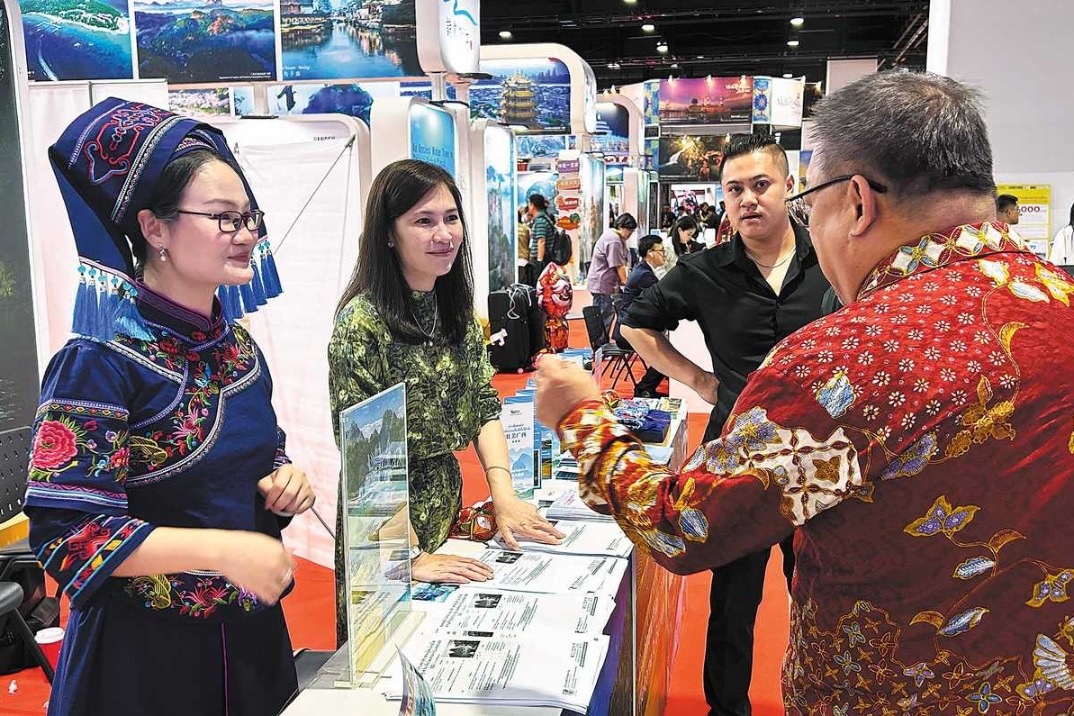US ag-tech startups moving to China

Shortly after entering the US market, ProteoSense, a Columbus, Ohio-based ag-tech startup, is looking at China as a target market for international expansion.
The company's pathogen detection platform allows agricultural water, food and environmental samples to be tested on-site in about 90 minutes. The conventional testing, which requires sending tests to a lab, usually takes a few days for results.
"For example, if you're an apple grower, apples go through the processing facility where they're washed and sorted, and that's where the risk for a food-borne pathogen comes in," said Mark Byrne, founder and CEO of ProteoSense.
The company's technology can help food manufacturers and processors comply with increasing food-safety requirements by quickly identifying pathogens rather than acting after a contamination problem or recall has occurred, said Byrne.
He said his company is looking for partnerships that have customer relationships in China.
The fast-growing middle class in China is driving food-safety improvements in the country, and its vast market provides big opportunities for agri-food tech companies.
American startups are going to China not just for that market, said Jonathan Hua, an early-stage investor at Scrum Ventures in Silicon Valley.
"China is great with building hardware very quickly and at a very low price. China has a great infrastructure in building IoT (internet of things), hardware solutions and automation," he said.
Many agriculture startups manufacturing products in the United States, such as robots that automate the harvesting process, are turning to China for sourcing components and manufacturing, Hua said.
Tensorfield Agriculture, a Silicon Valley-based startup, has chosen Shenzhen to build its non-herbicide weeding robot for "the fastest and most capable production timelines for prototyping", according to company CEO Xiong Chang.
The company is participating in a program of the Shenzhen-based HAX Accelerator, which aims to bring prototype to production in the hardware space.
"China also has a lot of investment funding. The government is very supportive of technological initiatives and bringing agriculture technologies from Silicon Valley to China," said Hua.
The city of Nanjing is building a giant agricultural innovation zone, and there are several initiatives popping up around China, all being backed by the government, he said.
"Collaborations like this are very critical, because together we'll be able to get there faster," said Hua. "I think American startups certainly should be going to China to exploit the opportunities to get funding or partnerships."
In the ag-tech space, what most of the accelerators are trying to do is to move the startups to the next stage of investment and then an exit through acquisition.
But Aaron Magenheim, founder of AgTech Insight, a Salinas, California-based ag-tech consultancy, said he wants to build a Chinese company and stay there for a long time.
"I'm not trying to have a quick exit to pay off a venture capitalist," said Magenheim. "We can either bring a technology from Silicon Valley to China, or we can make the concepts work for China and build it there."
For the past five years, Magenheim has been working to build relationships and networks in China. He said he doesn't believe in "patent infringement very much anymore".
"It used to be important, but now the most important thing is 'time to market' and market share — getting a decent product out to the masses and having big adoption rates," he said.
"So if you look at it in that case, a US company should not be worried about a Chinese company taking their idea and running with it," he said.
































